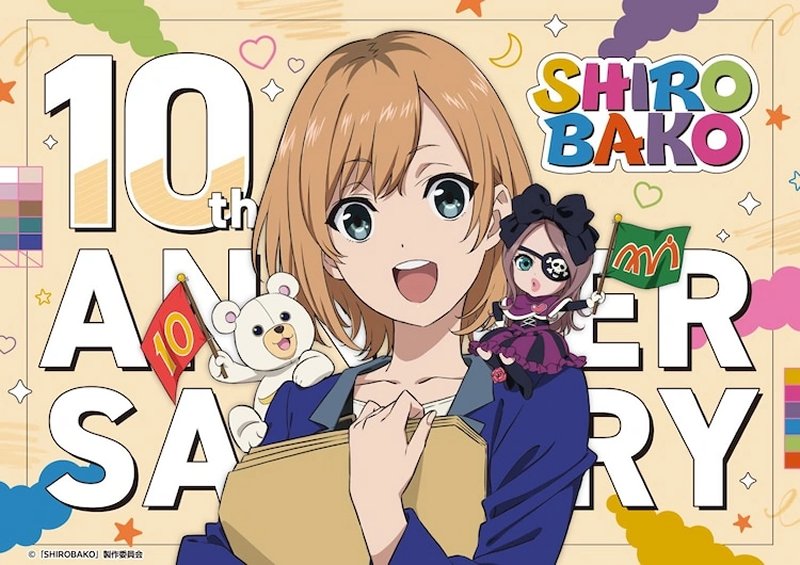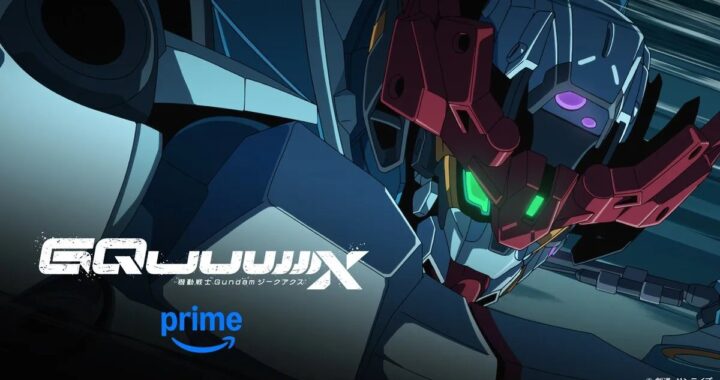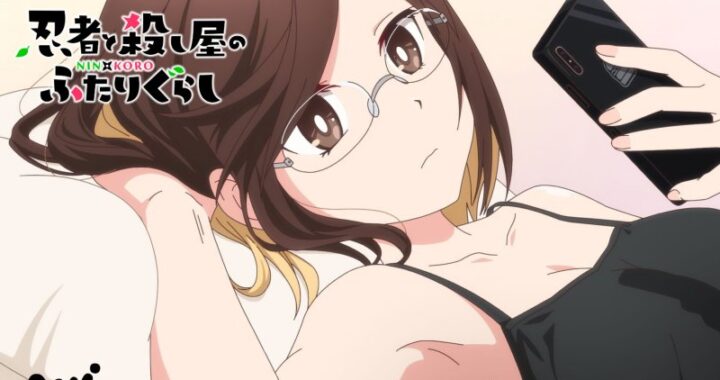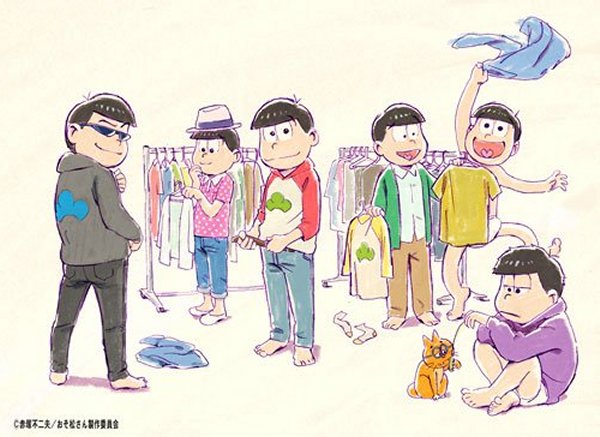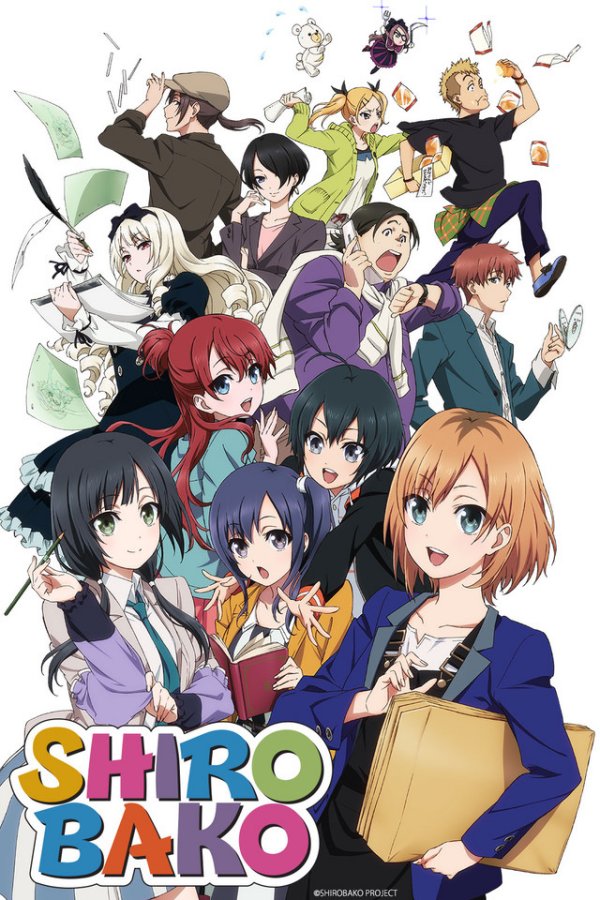
There are two areas where I always find a certain itch scratched when it comes to anime which are original projects and projects that focus on the creation of anime. The combination of the two is extra special but then you bring PA Works into it? That’s the magic ingredient. Original projects in a sense show the soul of a studio with what they want to do much in the same way the projects they buy into for adaptations do. Shirobako is one that goes a step further in that it’s all about the anime industry itself, or at least the production of anime while delving into how hard of an industry it is to survive in if you have dreams. We don’t get shows like this often, though one-off episodes in other series sometimes delve into it, and the biggest one in a sense for me over the years is still Otaku no Video which still holds up in a lot of ways and has its own nostalgia filter.
Shirobako revolves around five friends from high school several years after finishing that and college as well. In high school, they put together a pretty good anime project for their final festival, each of them with their strengths that built a whole. But their lives afterward went in different yet similar directions as they ended up in different areas of the industry where some are struggling and others are closer but still nowhere near where they need to be. Primarily, the focus is on Aoi Miyamori as she ended up going to college for economics but found herself trying to pursue her dream of being in the industry afterward. She works as a production assistant at studio Musashino, a mid-range studio that’s bringing out their new original work Exodus. Aoi is certainly in that learning phase of her job to be sure, but she’s been doing it for a while and has some skills that make her fairly well suited to it. A lot of it is just the kind of growth that comes from experience and connections.
Through Aoi’s eyes, we get to see the work going on with the production at the start of the series just as the first episode airs, and the comments and reviews come in. It’s a rough schedule to produce anime with so many moving parts and through Aoi, we get to see a wide range of these stories as they move through the various stages. Since there are the overall producers and directors while also having various members focusing on specific episodes for production as the assistants, we get to see this range of characters interact with each other while working towards this larger goal. That it digs into the various aspects of it all across this set works very well and it’s definitely engaging to watch if you want to see how the sausage is made that is anime. It’s not one that focuses heavily on areas such as voice acting for instance, or in the extensive pre-production side for the show in the first half here with Exodus, but going through it and exploring the cast within their work environment is spot on.
The series does work from another angle much better in that Aoi keeps up with her friends in a good irregular way that comes from the way life changes because of work. With each of them going in different directions but mostly within the industry, the catching up they do is fun since they’re all adults and are able to drink and hang out a bit when time allows. There’s some nice nostalgia towards their high school project and it is a motivator for them to want to be something more with their career goals, but it’s not made into some kind of golden object that’s held above all else. It’s allowed to exist without being the sum of all things while also being a binding piece that exists between them. It’s a cherished memory but one that doesn’t completely control them.
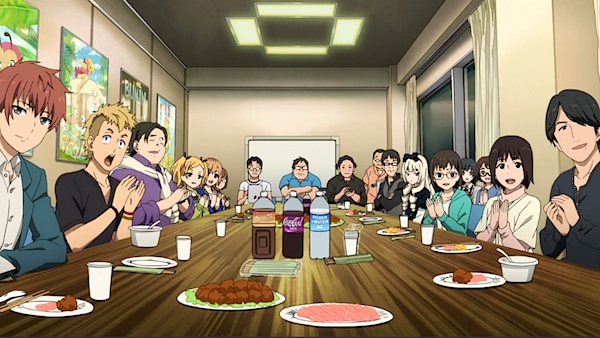
The series shifts gears well with the second half of its run as it revolves around the light novel series 3rd Girls, which is an end-of-the-world fighter pilot series with a group of women from different countries flying together as a wing to deal with the enemy. Like the first cour, the concept itself doesn’t get a lot of time because you can infer most of the basics. What you get about it is the hard work brought into play by adapting another work and the view of the original series through the eyes of the production team. While a job is a job in its most basic sense, with productions like this you really have to believe in it because of the immense amount of time spent on it. So seeing the cast getting emotional at times, really working through understanding the characters and their motivations, it’s an important part of it because they have to take the story from print to animation, which means a new slew of interpretations through visual design, sound design, mechanical design, and the voice acting itself. Suffice it to say, you really have to be into it to some degree to capture it right, to understand the source material.
This is part of my own frustration with so many adaptations these days as they’re pretty much slavish to the original work. And as we’ve seen from countless other productions there are plenty of areas for improvement or just changes that need to be made to accommodate a different medium. I always use Marvel as an example of a company that has figured out that you can take from the source and respect the source, but you can’t adhere to it completely because it simply doesn’t function that way. 3rd Girls runs into this to some degree as it progresses as we get the team trying to capture the look right, which is important when dealing with someone else’s designs, but also a significant problem toward the end about the ending itself since the light novels are ongoing and the creator, Nogame, wants a downbeat and uncertain ending whereas the director wants something that’s uplifting because of his own view of the meaning of the series. Each has to work to their medium, plus the change in the animation itself these days where second seasons are rare coming off of works like this.

To be fair, the problems with the author are revealed to be different than what we think early on, though you can tell that there’s something fishy going on anyway with the editor who’s managing this as the interface between him and the studio. There are all sorts of layers in how this all works and it’s definitely an interesting piece of it. What I liked, in particular, is that going back to my previous point, we saw how one of Nogame’s prior works was adapted and went in such a terrible and unrecognizable direction that you can understand why he’s as insistent as he is about what he wants and doesn’t want. The problem is that the Musani team gets so little direction and it screws up production and timing so much that it really does come across as a temper tantrum at times. Again, there’s a deeper piece to this and those who have seen series about the publishing business in the manga/light novel world will certainly recognize some of these characters from there.
Shirobako was a show many fans craved more of and while we didn’t get a new season we at least have a feature film that came out a few years later. I’m still kind of hopeful that in some weird way that PA Works will go back to this sometime and show us these characters, well, ten years later or more, so we can see their paths and whether they achieved more of the dreams, found new goals, or something else. Not a lot of shows really do that because they have an ending that feels right or complete. Shirobako has a great ending but since it’s about people and their lives, there’s that itch to want to know more of them and to see where they end up. This series still holds up incredibly well and is an absolute delight to watch with so many neat and silly moments. But also some great pieces that a lot of projects miss simply by having the friends still in each other lives to varying degrees and showing adult working relationships. Shirobako will be special for a lot of people for a long time to come and hopeful newer fans continue to discover it as well.


